Choosing the right storage solution is a critical decision for any business. Whether you’re managing inventory, equipment, or operational logistics, finding a space that aligns with your needs can impact efficiency, costs, and long-term growth.
Traditionally, this choice comes down to the two most typical business storage solutions: industrial warehousing or self-storage. Both of these options have distinct benefits, and ultimately the decision about what’s best for your business depends on your business needs – factors like operational requirements, scalability, and the sensitivity of your inventory all play a role in which of these options you might choose.
But what are the distinct benefits of each, and what are their respective drawbacks? Do you really have to make sacrifices no matter what? By taking the time to better understand what storage options are available to your business, you’ll be better equipped to make one of the biggest decisions about its future with confidence.
What Self Storage Offers
Self-storage is a straightforward and flexible option for businesses that need a simple storage solution without the complexity of managing a full warehouse. It’s easy to access and works well for:
- Securely storing surplus inventory, tools, documents, and other business materials
- Businesses that don’t require an operational facility for shipping or receiving
However, self-storage does come with some limitations:
- Activities like packing, shipping, or order fulfillment typically aren’t allowed.
- Unsuitable for temperature-sensitive inventory.
- While some locations offer month-to-month rentals, many require long-term commitments.
- While affordable for small spaces, pricing increases significantly as storage needs grow.
For businesses just starting out or those with minimal storage needs, self-storage can provide a basic and accessible solution—but it’s important to check contract terms and space limitations before committing.
“We started with a WareSpace self-storage unit to manage seasonal inventory overflow. It was secure, affordable, and exactly what we needed at the time.”
– McCullough Newton, NRH Tenant
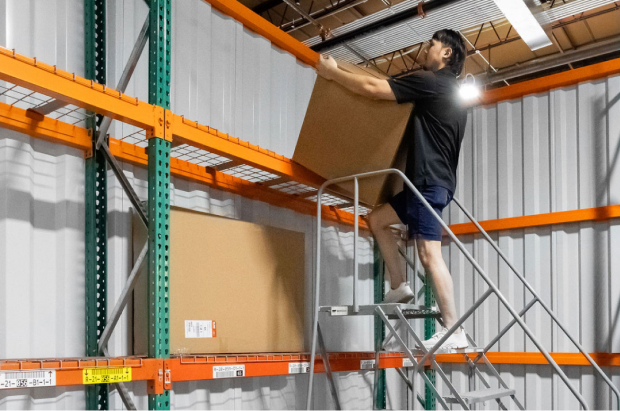
The Benefits of Industrial and Flex Warehousing
Industrial warehousing is the go-to solution for businesses that need dedicated, large-scale storage and operational space. These facilities offer:
- Climate-controlled facilities that protect temperature-sensitive inventory from extreme heat, cold, or humidity.
- Designed for operational efficiency, allowing businesses to manage inventory, receive shipments, and process orders in one place.
- Many warehouses require multi-year commitments, providing large amounts of space but requiring businesses to plan for future growth.
- Stronger security features, such as gated access, surveillance systems, and restricted entry, providing added protection for valuable inventory.
It’s the traditional, tried-and-true method for a reason – because it works for a lot of entrepreneurs.
“Our warehouse has allowed us the room to manufacture, package, and fulfill orders for thousands of customers.” – LaTonia Cokely
The Difference Between Industrial Warehousing and WareSpace
While industrial warehousing and WareSpace offer business storage solutions, they serve very different needs. Understanding these differences can help you decide which option aligns best with your business operations.
Industrial Warehousing:
- Typically designed for large-scale businesses with high inventory volumes.
- Requires long-term leases, often spanning multiple years.
- May include high overhead costs due to large space requirements and operational expenses.
- Often located in industrial zones, which may be less convenient for small businesses needing regular access.
- Offers features like loading docks, heavy equipment access, and large storage capacity, but is generally not flexible for scaling up or down.
WareSpace:
- Ideal for growing businesses, e-commerce sellers, and service providers that need both storage and workspace.
- Typically offers shorter lease terms, allowing businesses to scale as needed.
- Provides a more accessible, business-friendly environment, often in locations closer to urban centers.
- Includes built-in climate control, security, and operational flexibility without the commitment of a full industrial warehouse.
- Supports day-to-day business operations, such as receiving shipments, fulfilling orders, and managing inventory, in addition to storage.
If your business needs a dedicated space to operate and store inventory but isn’t ready for the commitment of full industrial warehousing, WareSpace can provide the perfect balance of flexibility, functionality, and affordability.
Decoding Your Storage Needs
Your perfect business storage solution depends on your specific operational needs. But how do you determine which option is right for you? The first step is identifying your biggest storage challenges, so you can find a solution that addresses them.
Consider the following:
- Do you need a simple and secure place to store inventory, equipment, or documents with infrequent access?
- If yes, self-storage may be a cost-effective solution.
- Are you running out of space and need room to grow your operations?
- If so, industrial warehousing may be better suited.
- Do you need a climate-controlled space for sensitive inventory?
- Most industrial warehouses and self storage units across the United States do not offer climate-controlled solutions. WareSpace stands out by providing climate-controlled warehouse spaces, making it a more suitable choice for businesses
- Do you need to receive shipments, package orders, or manage inventory on-site?
- Self-storage won’t allow for this, but a warehouse or workspace with operational flexibility will.
- Is affordability and flexibility your top priority?
- Self-storage is often more budget-friendly for smaller-scale needs, while long-term warehousing can require larger financial commitments.
- Do you frequently deal with seasonal inventory changes and need a solution that can scale up or down?
- A flexible warehouse or hybrid workspace may be the best option.
- Will you or your team need regular, direct access to stored materials?
- If frequent access is required, a workspace with integrated storage or industrial warehousing is a better choice than self-storage.
By answering these questions, you can identify your key storage challenges and determine whether a simple self-storage unit, a full industrial warehouse, or a hybrid solution like WareSpace is the best fit for your business.
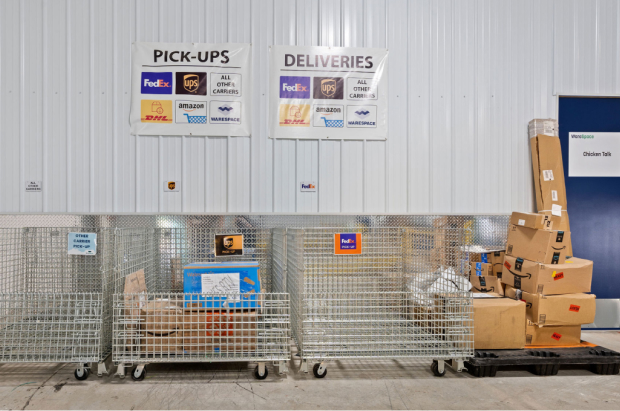
How WareSpace Bridges the Gap
Traditional self-storage and industrial warehouses each have their limitations. Self-storage units are strictly for storage, meaning you can’t legally operate a business from them—activities like picking, packing, shipping, or receiving shipments aren’t allowed, and you can’t use a self-storage unit as your business address. Industrial warehouses, on the other hand, allow you to fully operate your business while also providing storage.
That’s where WareSpace comes in—offering a middle-ground solution designed for small businesses, creative professionals, e-commerce businesses, and entrepreneurs. WareSpace provides small warehouse spaces that serve as workspaces with built-in storage, so you can store inventory, manage operations, and scale your business—all from one convenient location.
Unlike large self-storage and industrial storage units, which are rarely climate-controlled, WareSpace offers climate-controlled spaces to ensure both your team and your inventory are protected year-round.
With the accessibility and affordability of self-storage, the operational capacity of industrial warehousing, and a business-friendly setup unique to WareSpace, you get the best of both worlds—without the restrictions of traditional storage facilities.
Making the Right Choice
A guide to deciding the best future storage for your business:
- Assess Your Needs: What does your business need to thrive, right now? Are you still in single-storage-unit territory, or are you looking for a multi-function operational hub? Smaller warehouse spaces are often more budget-friendly, allowing you to take your growth one step at a time. Determine what storage suits your current model best.
- Consider Inventory Type: Sensitive inventory requires a more sensitive environment, so it’s important to consider the climate (and climate-control) of your potential storage facility.
- Determine Ideal Accessibility: Consider how you want to be able to interact with the space, including often you’ll need to access it and for what purposes.
- Prioritize Flexibility: Make sure that the solution you choose today aligns with the business you want to be tomorrow – keeping in mind both your growth trajectory and your current budget.
How to Get Started
Choosing the right storage solution is a big step toward optimizing your business. Whether you need a dedicated workspace, secure inventory storage, or a space to scale your operations, WareSpace has a solution that fits your needs.See it for yourself—schedule a warehouse tour today and discover how WareSpace can provide the space, security, and flexibility your business needs to grow.
Ready to scale your business?
Find the ideal warehouse space for your business at a low monthly rate, near you.
- 12+ prime locations
- 1,200+ customers
- Rated 4.8 out of 5
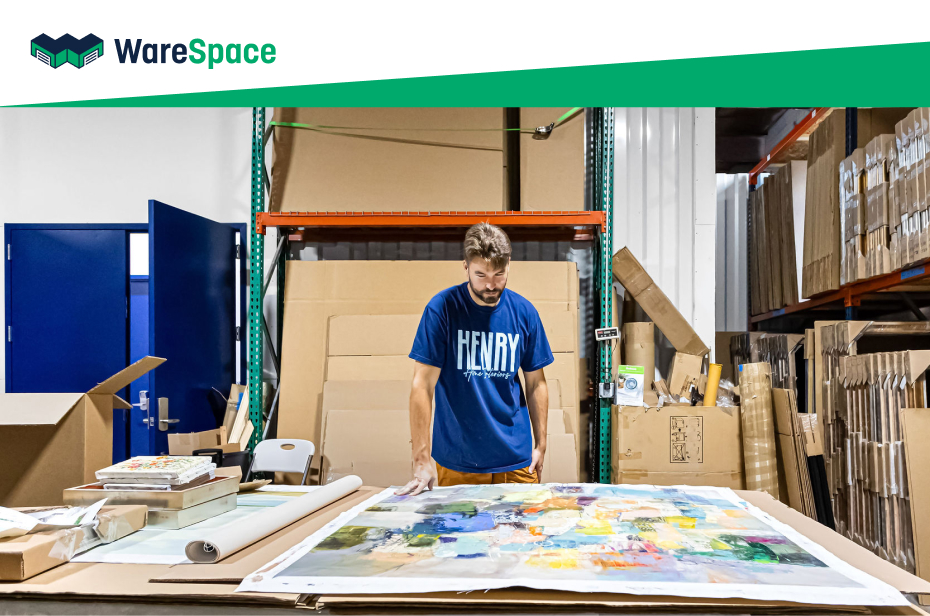
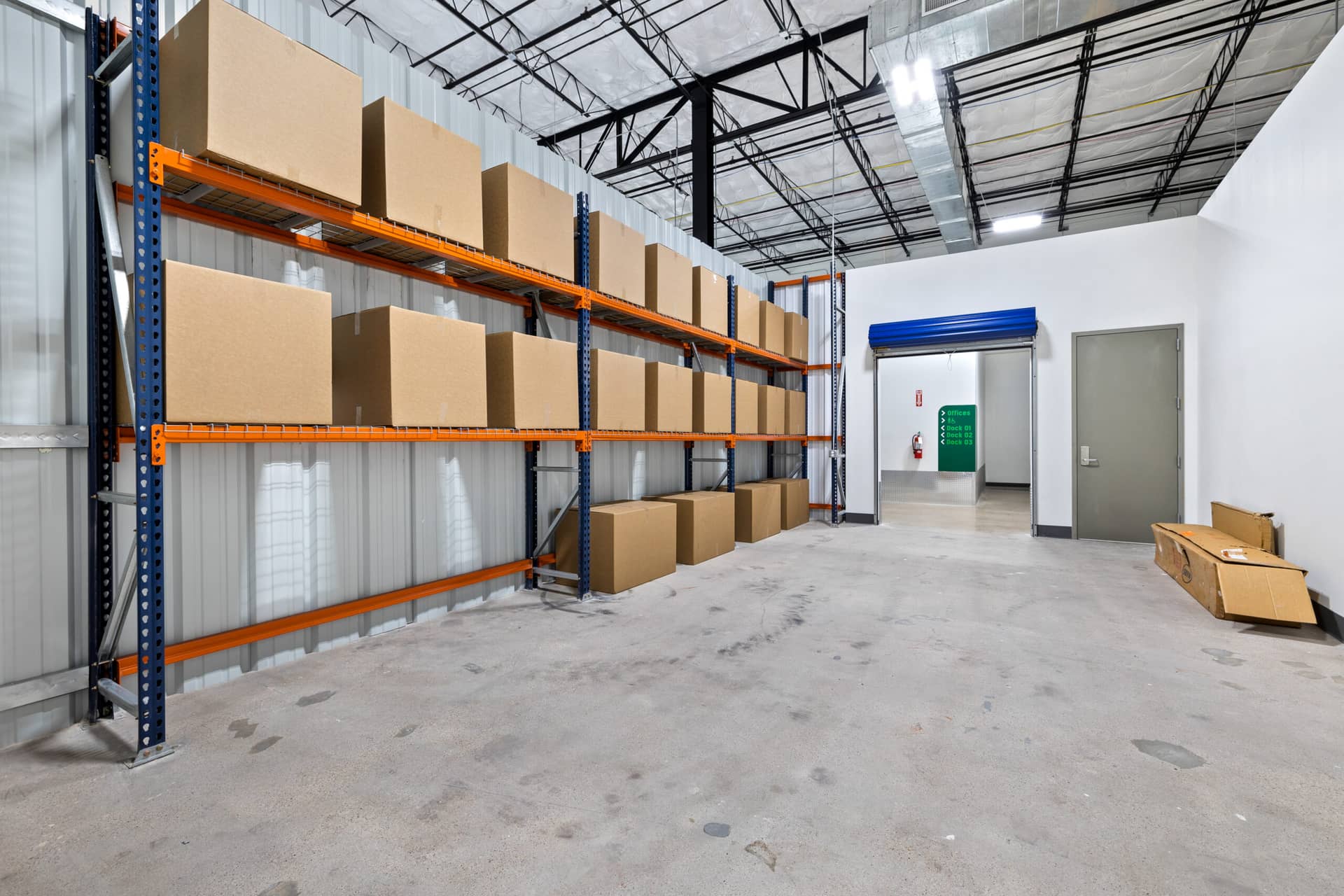
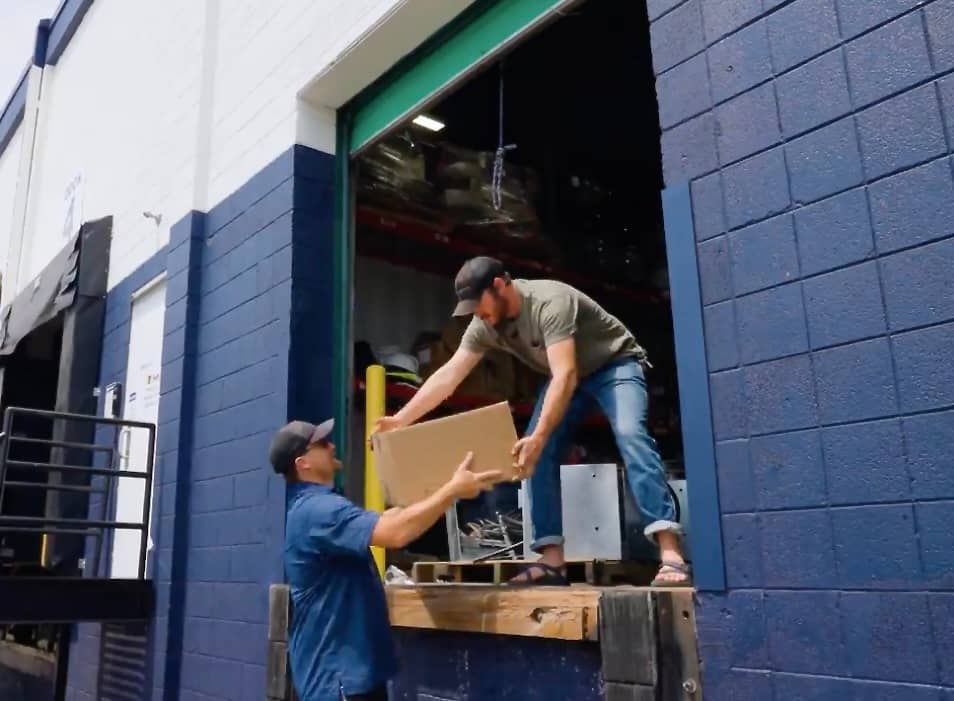

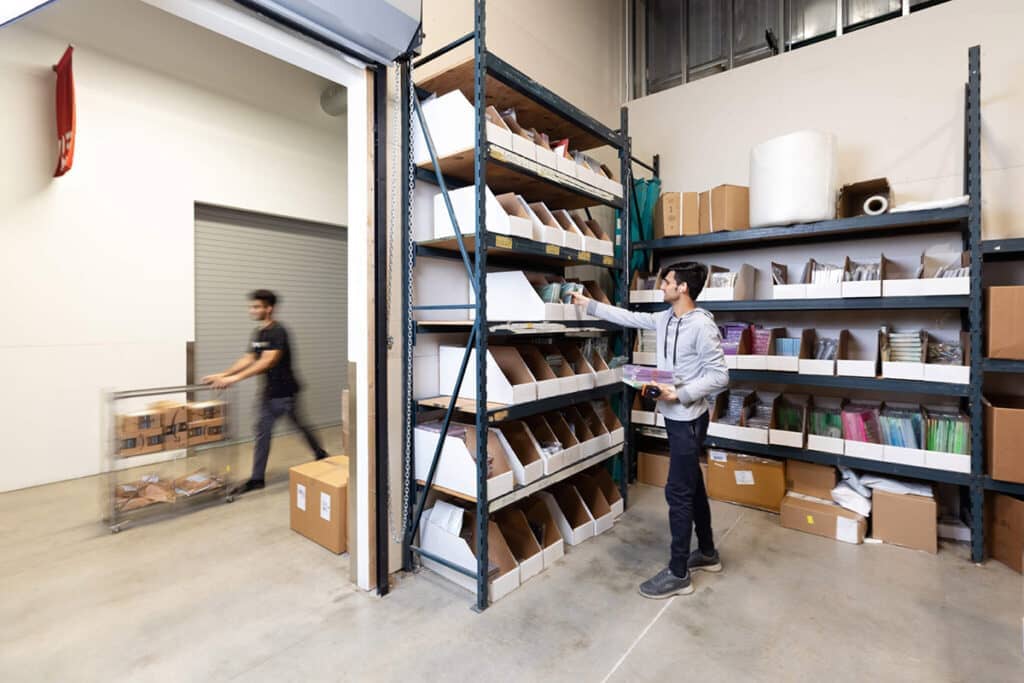
 ►
Explore 3D Space
►
Explore 3D Space